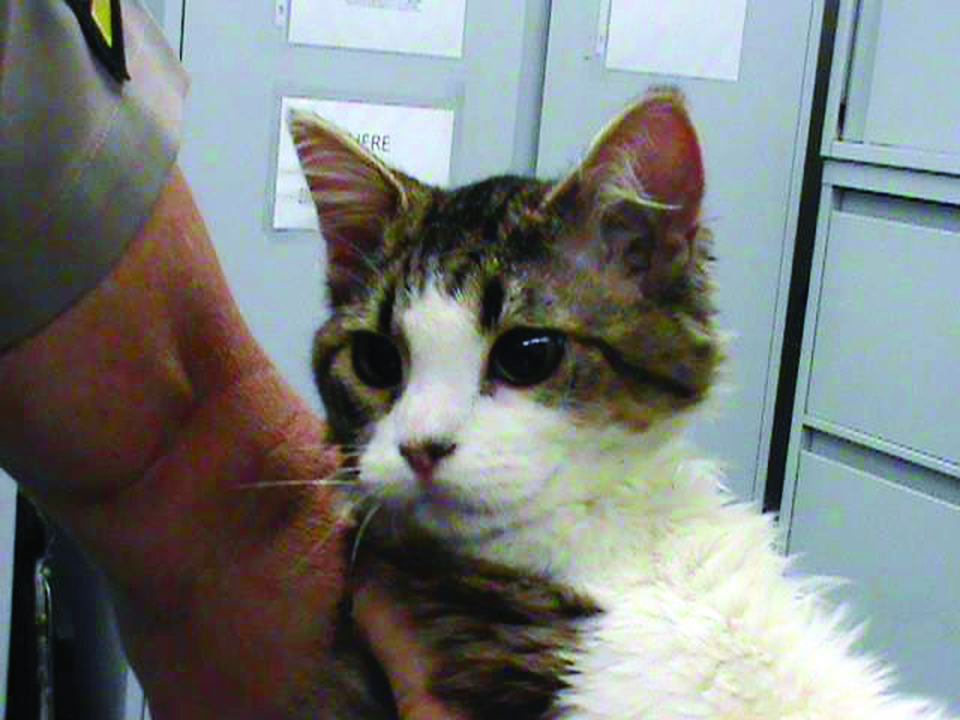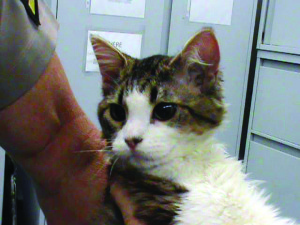
By: Catherine Clements | Student Columnist

“Other” is the dumping ground for what one cannot categorize elsewhere. How many times in life do we, as a society, check this box?
January 2016 marks a new year for the way animal crimes will be reported. The national Uniform Crime Reporting (UCR) system, a database that law enforcement sectors around the country voluntarily report to, will now list animal abuse as a separate crime instead of hiding it in this “other” category.
Animal abuse, as defined by the FBI, is “Intentionally, knowingly or recklessly taking an action that mistreats or kills any animal without just cause, such as torturing, tormenting, mutilation, maiming, poisoning or abandonment.”
It’s shocking to consider how long it took for the FBI to include a separate animal abuse category. Living in the information age, one would think this problem would have been streamlined and identified years ago. Commercial industries have information systems that can track every purchase a customer makes in their lifetime. Why couldn’t a national organization separately categorize animal abuse cases?
The lack of attention to even the tracking these crimes shows the lack of understanding of the seriousness of crimes against animals.
Part of the problem is the gap in awareness. Animal abuse seems like such a distant problem. Most people don’t have any personal connection to the issue.
Maybe there needs to be more Sarah McLachlan commercials to get the point across. Animal abuse is a horrible thing; it will not be overlooked any longer.
Offenses against animals will be considered “Group A” charges, the most serious of offenses against people, property or society.
Offenses for animal cruelty will be categorized as either simple/gross neglect, intentional abuse and torture, organized abuse (such as dogfighting and cockfighting) or animal sexual abuse.
Not only will this help law enforcement agents figure out how to stop animal abuse, but it could possibly impact how they treat human abuse cases, as well.
Research suggests a strong connection between crimes against animals and abusive crimes against people, according to Randall Lockwood, psychologist and senior vice president of anit-cruelty projects at the American Society for the Prevention of Cruelty to Animals.
Educating people on this interconnectedness could be a part of the solution to stop animal abuse.
“Often animal cruelty is an indicator crime that other issues may be going on within the same household: ongoing child abuse, elder abuse, domestic violence and so on,” explained Lockwood.
Though animal abuse cases will be reported to the FBI, the officials will not be investigating cases. Rather, animal abuse cases are typically handled by the local police department, sheriffs’ offices and animal control organizations. But the FBI can use this information as a resource for solving other cases.
Before the inclusion of animal abuse in crime listings, the government and society had no way of tracking these trends. Understanding the volume of crimes against animals can help the FBI allocate time, money and training to stop abuse.
Humanity recognizes that creatures rely on each other. It is a part of our job, whether it’s the elderly or the animals, to protect the more vulnerable groups.
Phil Arkow, the coordinator of the National Link Coalition which raises awareness of this species-spanning interrelatedness, believes the public has diminished animal crimes for long enough.
Agencies across the United States have the ability to view the UCR. Now that animal abuse offenses are listed, Arkow believes that law enforcement will be more motivated to look into these cases.
“It’s no longer seen as a minor crime or something that can be ignored because we have more serious issues with crimes against people,” Lockwood said.
Reporting these crimes separately is a huge win for society. Not only can public officials better protect animals, but humans as well.



